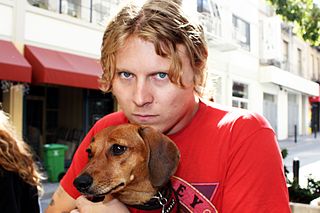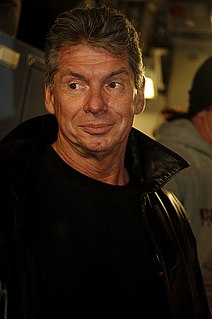A Quote by Greg Ginn
Putting out the things that I like best hasn't been the easiest way to run a label, and it still isn't because it requires finding an audience for each record.
Related Quotes
If you'd have asked me two years ago, I'd have been like "No, anything and everything. Go for it." Now, I want to focus on doing the best I can each time. But I think it's hard for me to only put out one record a year. Because I get too antsy. But it's good I'm learning to do that, because each record counts. And you should make it count.
The way the press works, people don't like to review or talk about EPs. It's considered, 'Why don't you just wait for the record?' But for someone who's creating, and the audience, they can get material quicker. I almost feel like putting out a few songs every couple months might be better than putting out an album every year or two.
We have signed with Artemis Records. Originally they were our distributor for 'Group Therapy'. My former manager (Chip Quigley) started a record label (Recon Records) and had Artemis Records as their distributor. Unfortunately, the way the label was run meant that it didn't turn out the way that we thought it was going to be. We simply got into something that was different to what we initially thought
If I'm working on a set of songs, and thinking about putting them together in a collection, I start to think about what they have in common. Either on purpose or without meaning to, I shape them all in the same kind of way, because I'd rather the album feel like a galaxy of things that all have to do with each other. I do that with sonic elements, too - it's a matter of each record having its own specific identity.
I still have a pretty lively audience in German and across Europe. And I continue to say, 'Thank you, God,' for making me smart enough to avoid getting hit by trucks and going out and finding myself an audience abroad. Which includes Asia - from Jakarta to Japan. Working hard at finding an audience abroad.
It was three breakups going on at the same time. It was breaking up with my band, and my boyfriend, and right after that, my record label. I was arguing a lot with my record label during that whole time, so maybe they all affected each other. This record, Mondo Amore, came out of a time that was really heartbreaking and confusing, and that's why I switched the sound up a lot, to make it sound a little bit grittier and more raw.
[Jack Johnson] became a superstar and started his own record label, and then he made and produced my first record, he co-wrote the songs on there, and then he let me open up for him for two years all around the world. And that was like the best start I could've had, the best way I could've started in the music scene.




































